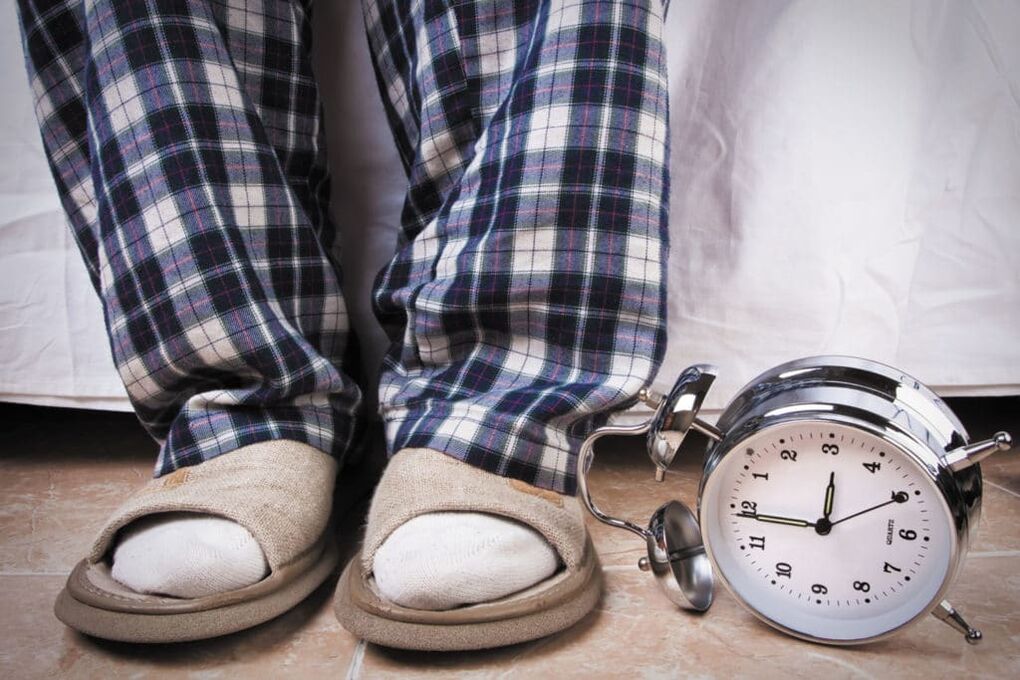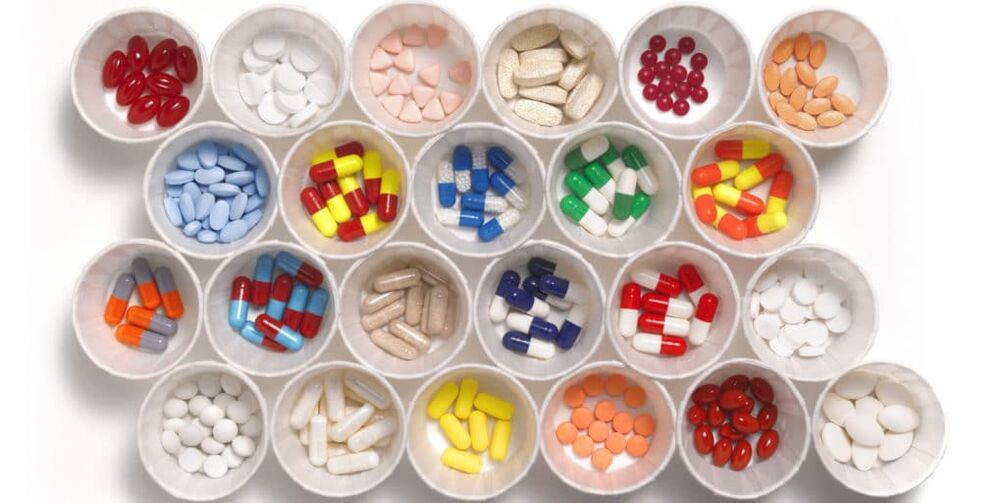Prostatitis is an inflammatory disease of the prostate gland that mainly affects older men. According to statistics, one form or another of the disease is diagnosed in almost 40% of men over the age of 50. Congestive prostatitis is a non-infectious inflammation of the prostate gland due to a violation of its function.
What is congestive prostatitis?
Congestive prostatitis develops due to a violation of nutritional processes in the prostate gland and pelvic organs. Nutritional properties refer to all the metabolic processes that occur in the organs - blood circulation, lymphatic migration, dynamics of prostate secretion.
This disease is characterized by a number of specific symptoms, which are manifested by edema of the inflamed organ. Because prostate secretion is delayed, its lobules are not completely emptied, leading to inflammation and enlargement of the organ. As a result of these processes, the prostate gland presses on the bladder and urethra, which explains the appearance of the symptoms of the disease.
In contrast to the acute form of inflammation caused by pathogens, congestive prostatitis can go on for years without serious symptoms. During this period, there is a gradual violation of the function of the prostate gland, the organ is depleted, and over time the disease feels itself with a sudden exacerbation.
Congestive prostatitis is often diagnosed incidentally, during routine examinations by a urologist or at the time of an exacerbation, when a man is faced with pronounced symptoms.
The disease requires complex long-term treatment. The prognosis for recovery depends on timely detection of congestive prostatitis. In some cases, men live decades with chronic inflammation, requiring regular treatment to avoid exacerbations of the disease.

Prostatitis prostatitis develops without symptoms for many years. His treatment will also last for a long time.
Reason for development
Congestive prostatitis or chronic non-infectious prostatitis is a direct consequence of poor lifestyle choices. Disruption of metabolic processes in the prostate develops over a long period of time. The causes of the disease are:
- lower motivation;
- fat;
- improper nutrition;
- sexual abstinence;
- chronic stress;
- bad habits;
- Phlebeurysm;
- chronic constipation.
The main enemy of prostate health is inactivity. Lack of physical activity leads to a decrease in blood circulation in the lower body, including the pelvic organs, over time, prostate secretions thicken and inflammatory processes develop.
Being sedentary, carrying too much weight is a direct path to prostatitis. It is not without reason that congestive prostatitis is considered a disease of office workers, because sitting at a desk for many hours will lead to circulatory disorders in the pelvis and prostate.
Chronic stress, decreased immunity, hypothermia are all indirect causes of prostatitis. With a slow, stagnant inflammatory process, these factors act as triggers for the symptoms of the disease to worsen.
Another enemy of men's health is chronic constipation. Difficult, irregular bowel movements lead to dense stools, passing through the intestines, causing prostate irritation. At the time of bowel emptying, the psyche is disturbed. With rare constipation this is not dangerous, but frequent bowel disturbances lead to irritation of the prostate gland with the subsequent development of prostatitis.

Congestive prostatitis is a common problem among office workers.
Why is prostatitis dangerous?
Congestive prostatitis accompanied by specific symptoms significantly impairs a man's quality of life. In addition to constant discomfort, severe disease also entails dangerous complications.
First of all, potency is affected. Violation of blood circulation, dense secretions and a decline in the contractile function of the prostate gland lead to sexual intercourse that is not pleasurable, but is also accompanied by unpleasant, painful sensations. Over time, the problem gets worse, so in addition to a weakened sex drive, erectile dysfunction occurs. Insufficient blood flow into the penis leads to impaired erection and threatens erectile dysfunction.
Congestive prostatitis can cause infertility in men.
A fairly common complication of tubal occlusion is pyuria, which can cause kidney infection and pyelonephritis.
Lack of prompt treatment for congestive prostatitis can lead to the formation of lumps in the prostate gland, the removal of which often requires surgical intervention.
Symptoms of the disease
Symptoms of congestive prostatitis include difficulty urinating. In addition to the exacerbation of the disease, people experience bladder heaviness, frequent urges to go to the bathroom, and weak urine pressure. Sometimes there may be pain in the bladder area, spreading to the lower abdomen and perineum. The pain is spastic in nature, contractions appear and subside.
With congestive prostatitis in men, there are problems with ejaculation and the ability to ejaculate. In this case, both an increase in the duration of sex and premature ejaculation can occur. The peak is accompanied by a burning pain in the urethra.
The signs of prostatitis with congestive prostatitis intensify with each passing day. This happens on the basis of weakened immunity, severe stress, overwork or hypothermia. Symptoms are acute. The urge to urinate can be up to 8 times per hour. Emptying the bladder does not bring relief, as it feels heavy and full. Pain syndrome presents acute, with a feeling of heaviness in the rectum, caused by an enlarged prostate gland. In rare cases, hematuria - hematuria may occur. After urinating and ejaculating, you will feel pain and an intense burning sensation in your urethra.
Congestive prostatitis is not a bacterial inflammation, therefore, an increase in temperature with this form of the disease is extremely rare. However, due to constant discomfort in the perineum, symptoms of general discomfort are noted - drowsiness, irritability and loss of strength. Typically, the course of congestive prostatitis is aggravated by insomnia due to increased urge to go to the bathroom at night, which is caused by prostate swelling at night and at night.

Frequent urination does not help or sleep
Diagnose
Congestive prostatitis is diagnosed by rectal examination of the prostate gland by a urologist. This is done by massaging the prostate or TRUS.
Diagnosis by ultrasound is considered an uninformative method, since it indicates the presence of inflammation, but does not indicate the nature of its development. For this reason, the most informative is the analysis of prostate secretion. According to the nature of changes in the composition of the prostate gland, congestive prostatitis and its complications are diagnosed.
To rule out adenomas and other disorders, MRI of the prostate is additionally indicated.
The principles of treatment
Treatment of congestive prostatitis is a long process. Therapy aims to reduce inflammation and edema, improve urinary condition and restore metabolism in the organ.
In addition to specific therapy, patients are prescribed diet, exercise and physical therapy. All of these methods pursue one goal - to normalize the flow of prostate secretions and improve blood circulation to the organ.
Drug treatment
With congestive prostatitis, treatment is with symptomatic and specific therapy.
Symptomatic treatment includes the use of antispasmodics, analgesics, and nonsteroidal anti-inflammatory drugs. Such drugs can relieve pain and discomfort and improve urination, but do not affect prostate function.
Unlike infectious prostatitis, with congestive inflammation in the secretions of the prostate gland, the causative agent is undetectable, so antibiotic therapy is not appropriate.
For treatment is used:
- alpha blockers;
- antispasmodics;
- non-steroidal anti-inflammatory drugs;
- plant products;
- rectal suppositories to restore the function of the prostate gland.
Administration of alpha-blockers improves urodynamic status. These drugs relax the muscles, reduce the tone of the bladder, and make it easier to urinate. With congestive prostatitis, treatment with these drugs is carried out for a short time, due to the large number of side effects.
To reduce inflammation, nonsteroidal anti-inflammatory drugs are used in the form of tablets or suppositories placed rectally. Treatment lasts no more than a week, 1-2 suppositories per day. It reduces inflammation and swelling of the prostate gland, while also reducing pain. NSAID injections can also be done, but only if directed by your doctor.
Conventional antispasmodics can help relieve pain in the bladder and perineum. The drug is taken as needed, but not more often than three times a day, one tablet.
The main part of the treatment of congestive prostatitis is the use of herbal remedies, vitamins and immunostimulants, which work to restore the prostate gland.
Therapy can be supplemented with phytopreport preparations in candles with bee products in the composition, ichthyol or pumpkin seed oil. You can buy these at a pharmacy or make your own. They have anti-inflammatory properties and stimulate the immune system.
You should consult your doctor about how to treat congestive prostatitis. The length of treatment depends on the severity of symptoms, but usually takes at least three months.

The main goal of therapy is to restore gland function.
Folk remedies
You can supplement the treatment with folk remedies. The following recipes will help to cure prostatitis.
- Eringium or erythema with congestive prostatitis can reduce inflammation and speed the recovery of the prostate gland. Roots are used to treat diseases. It is dried and chopped with a knife. Then 30 g of the roots are poured with three glasses of hot water and cooked over low heat for half an hour, avoiding boiling. Strain the broth and take half a glass a day for a month.
- Candles with propolis and honey will help reduce inflammation. To prepare, melt 200 g of badger fat, add 40 ml of propolis tincture and a large spoon of honey to it. The mass is poured onto cling film and left in the refrigerator. When the product has hardened, people use a knife to cut it into small torpedo-shaped pieces the size of a little finger. These suppositories are stored individually in the refrigerator. Treatment lasts three weeks, suppositories are inserted into the anus at night, 1 capsule per day
- To prepare medicinal candles, you can use cocoa butter and pumpkin seed oil. Ratio - 10 ml of pumpkin seed oil per 100 ml of cocoa butter.
Folk remedies can also be used to prevent exacerbations of prostatitis. In this case, the course of treatment is reduced to two weeks.
Massage and physiotherapy
With congestive prostatitis, prostate massage and physical therapy are prescribed to improve circulation. Massages are carried out in courses of 10-15 procedures.
Physical therapy method selected by the doctor. Usually, with prostatitis, acupuncture, hirudotherapy, electrophoresis, acupuncture therapy, darsonvalization treatment are performed. Good effect is achieved with ultrasonic and shock wave treatment.
In addition, there are several types of home-use prostatitis machines. Before buying such a device, you should consult a doctor.
Lifestyle and prevention
Avoiding bad habits and a balanced diet will help speed up the recovery process from prostatitis. Natural prostaglandins should be included in the diet - pumpkin seeds, pumpkin seed oil, honey, citrus fruits, walnuts.
You should normalize your daily routine and exercise regularly. An important role in the treatment of congestive prostatitis is assigned to regular sexual activity, since sex eliminates the cause of the development of the disease - the stagnation of secretions in the glandsprostate.
Having learned what congestive prostatitis is, you should know how to prevent its development. Prevention of falling ill is to have a careful attitude towards one's own health. In order for the prostate gland to be healthy, it is necessary to provide itself with moderate but regular physical activity, to prevent hypothermia of the pelvic organs and strengthen the immune system.


























